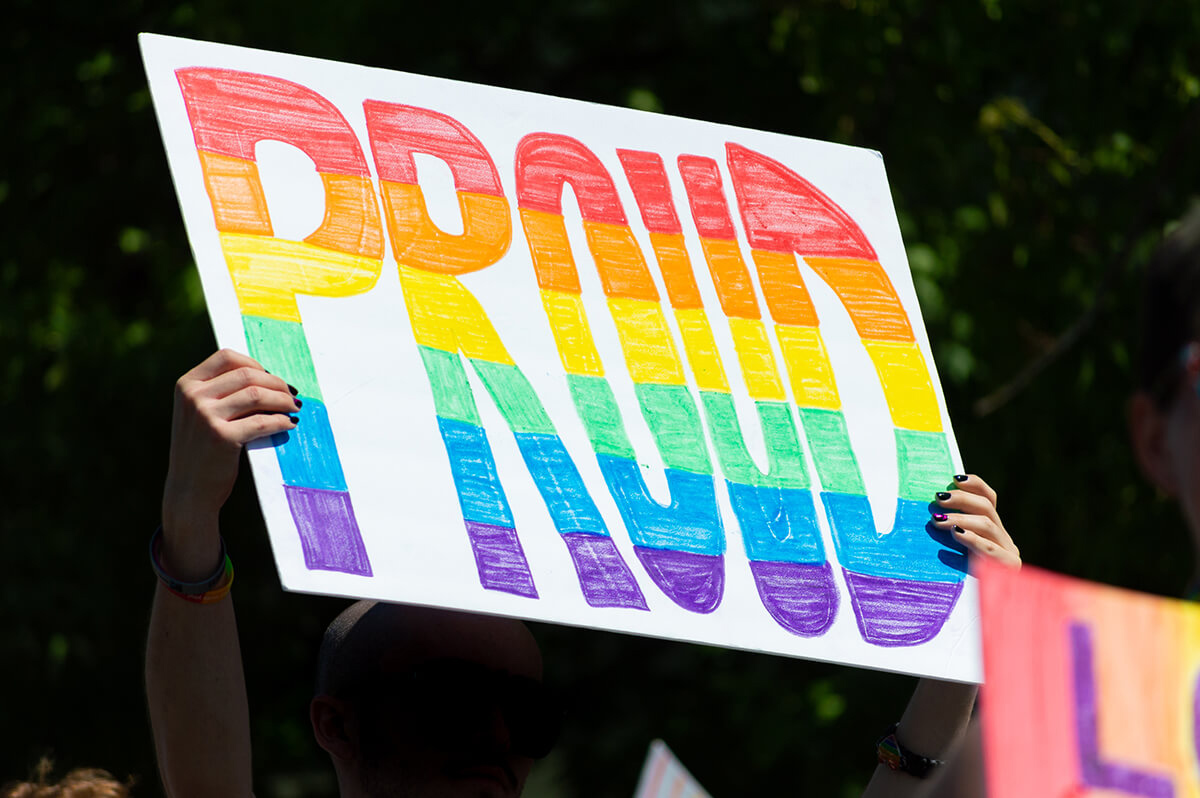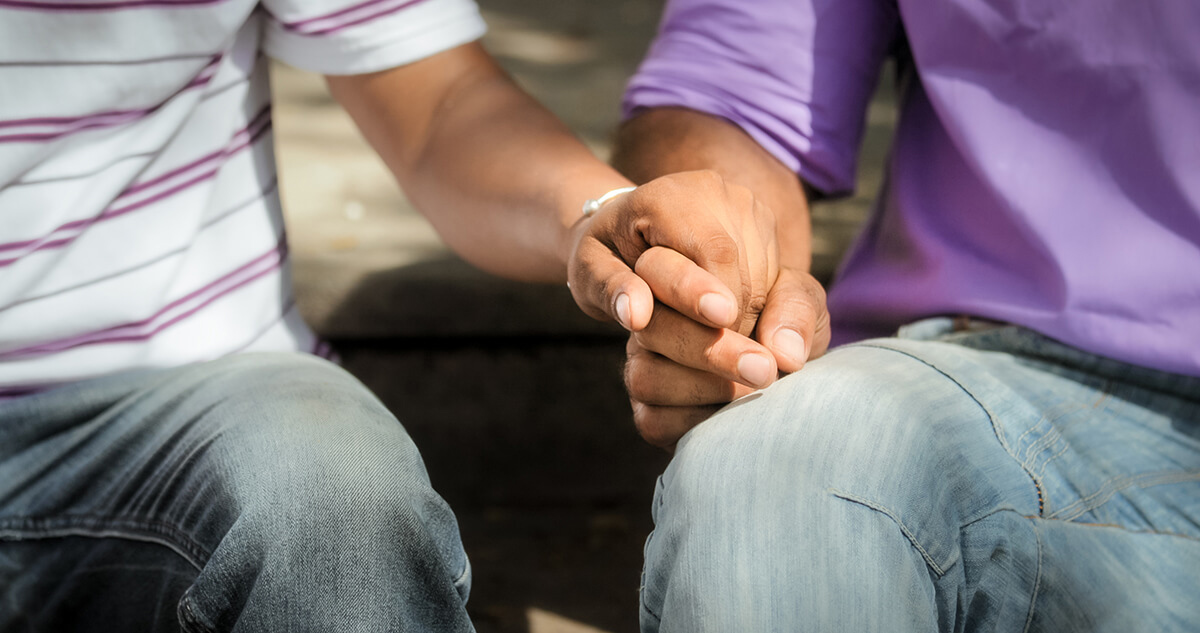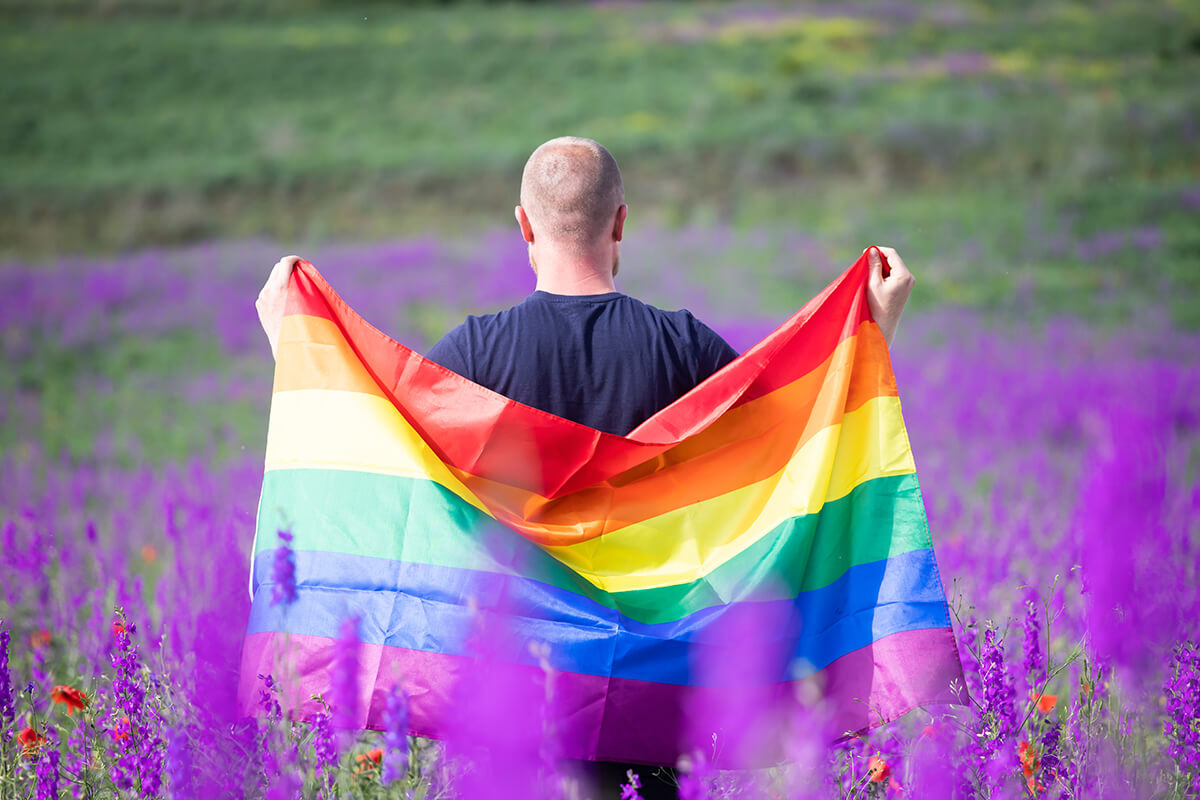 24 Mar 2021
24 Mar 2021
BY: admin
LGBTQ
5 Strengths Unique to the LGBTQ Community
5 Strengths Unique to the LGBTQ Community
The LGBTQ community is one of, if not the most, diverse groups in the world. Being a gay, lesbian, bisexual, transgender or non-gender-conforming individual in today’s society can be overwhelming in many regards; although the world has, for the most part, become much more accepting and even impassioned about advocating for equality, there is still a tremendous amount of work that needs to be done. Beyond the political and social aspects, many teens in the LGBTQ+ network feel a pressure to quickly identify and conform to their own group’s standards and ideals.
Stigma and stereotypes persist, even among allies. Rather than embracing someone for who they are as a unique person, identity erasure may occur as a person becomes a token “gay friend” or other concept to people around them. Mental illness is still higher in the LGBTQ community than any other group, and with so many obstacles to face, Caring Heart Counseling believes it’s also important to take time to celebrate the strengths of the community.
Courage
It’s impossible not to be reminded of courage when we reflect on the efforts of protesters, advocates and and every day individuals who live their lives directly facing discrimination, ignorance and inequality. It takes immense courage to speak up and live authentically as an LGBTQ+ person. Although you may still be closeted, the fact that you carry your identity with you each day still shows incredible strength.
Self-Awareness
Coming out is not something that someone does with no forethought. It often takes years of personal exploration to fully understand, acknowledge and embrace your identity. The insight you have into your own thoughts, emotions and identity are a valuable asset that make you more empathetic toward others.
Originality
When you are always told that the “norm” is to be heterosexual and cis-gender, it can be difficult to live outside of the bubble. But people in the LGBTQ community are champions for authenticity; their bravery is embodied in their natural expression of who they are. You don’t have to be “out and proud” to still be living authentically, either. Everyone represents and expresses their individuality differently, and it’s something that the LGBTQ community embraces.
Resilience
Despite misconceptions, stereotypes, discrimination, hate crimes and so much more, the community is still thriving in the face of it all. People continually share their own stories and triumphs, spreading hope to anyone who feels trapped by their current situation.
Inclusivity
The community strives to accept anyone and everyone who identifies outside societal gender and sexuality norms. While there is still some internal division and debates, the LGBTQ community at large is incredibly diverse, inclusive and welcoming to everyone. Being able to say that you are a part of a community that takes others in where the world has failed is no small accomplishment, and it is a source of pride and strength that many hold dear.
Finding Your Strength
If you are ever struggling in your own identity or with mental health in general, please contact our Colorado therapists. We offer specialized, compassionate, person-centered therapy for people in the greater Denver LGBTQ+ community. We also provide a wide range of other services that you can review here. Please reach out to us today with any questions or to schedule a session.
 17 Mar 2021
17 Mar 2021
BY: admin
LGBTQ
Why Is Depression More Prevalent in the LGBTQ Community?
Why Is Depression More Prevalent in the LGBTQ Community?
Mental illness is more common in the LGBTQ communitites than any straight, cis-gender group. Approximately 4.5 precent of the United States population identify as gay, lesbian or bisexual, and over 39 percent have expeirneced a mental illness within the last year. In 2015, 60 percent of LGBTQ youth reported being so sad that they were no longer partaking in activities they once enjoyed. People who identify as transgender are also more likely to experience depression and attempt suicide. Why are people in the LGBTQ community experiencing depression at such a greater rate than the rest of the population?
There is no single answer, and we would never attempt to identify the true reason for an individual’s unique experience with mental health. However, there are some common experiences and themes in the lives of people who identify as LGBTQ that can lead to the development of depression. Understanding these causes can help you better understand and support a loved one or even help yourself.
Non-Supportive Family Members
LGBTQ youth who do not have family support are much more likely to experience depression, self-harm and attempt suicide; there is also a pandemic of youths being kicked out of their homes and thrust into homelessness because their parents or guardians do not accept them for who they are.
Even if someone can keep their housing, living under the same roof as people who are openly homophobic, transphobic, and/or abusive poses life-threatening risks to someone’s mental health. Depression and its accompanying feelings of hopelessness, shame, and worthlessness, can stem from a non-supportive environment.
Lack of Understanding and LGBTQ Resources
Despite the fact people are more open about mental health today, there is still limited knowledge surrounding the unique experiences, challenges, and emotions that influence an LGBTQ person’s mental health. Even doctors and therapists can be ignorant to the influences that cause their patients to experience depression. Failing to recognize the added challenges of being LGBTQ can worsen a person’s feelings of isolation.
Minority Stress
Although the community is millions strong, almost everyone who identifes as gay, lesbian, bisexual, trans, or queer has felt alone and outcasted at some point. LGBTQ people deal with constant stress and anxiety about their own safety, their future and their personal rights. It’s not something easy for a non-LGBTQ person to understand. It is exhausting trying to explain it, so most people stay quiet and suffer in silence.
People in the LGBTQ may also experience pressure as a minority to be an advocate for their group; however, taking on the role of educator is draining and can ultimately create more stress and pressure that negatively affects your mental health.
Colorado LGBTQ Counseling & Therapy
Our therapists offer care to LGBTQ teens and adults throughout Denver. We don’t believe that there is anything you need to change about yourself, only things you may need to overcome to live more authentically. Whether you feel trapped, alone or afraid, we are here to listen and help. Please contact us today to learn more and request an appointment at your earliest convenience.
 11 Mar 2021
11 Mar 2021
BY: admin
LGBTQ
The Challenges of Coming Out in Your 30s and 40s
The Challenges of Coming Out in Your 30s and 40s
National Coming Out Day has been observed since 1988, and it still stands as a day of liberation and celebration for millions of people each year. But if you are in your 30s or 40s, you might worry that you’re too old to come out as gay, lesbian or another sexual orientation. While it may feel like coming out young is the norm, there are over 3 million Americans over 50 who identify as LGBTQ, so you are not alone.
At Caring Heart Counseling, we have therapists experienced in working with LGBTQ clients who can help you navigate the unique struggles and challenges you face, including coming out in your 30s and 40s.
Fears About Coming Out Later in Life
The biggest fear most clients in their 30s and 40s have is the impact they’ll have on their loved ones. You may have children, close friends or a family who has a specific image of you that you fear will be shattered if they know your sexual orientation. You could also feel torn between the straight life you’ve led, even if people just assumed it, and the gay world that feels foreign and unfamiliar.
There can be a serious amount of stress, anxiety and discomfort toward embracing oneself as LGBTQ. You may not even know if you fully identify as gay, lesbian, bisexual or something else entirely. This can naturally lead to an avoidance that keeps you trapped in silence, unsure when or if it’s a good idea to be more open about your identity.
Can Counseling Help Me Come Out?
Therapists who have experience in treating LGBTQ clients can help them navigate the pros and cons of coming out. They can’t tell you when to do so, but they can help you explore the process, practice and decide who to let in on your personal life. What’s most important is figuring out what feels most comfortable and safe for you; you should never be forced to come out from societal pressure or preconceived notions. Likewise, you shouldn’t be condemned to a life that doesn’t feel genuine because you fear you’ve missed your time to come out.
There’s Never a Wrong Time to Come Out
While it’s never too late to be open about who you are and who you love, it can be daunting for someone who feels like they’ve “missed the mark.” The younger generation are so open about their sexualities and gender identities that gay, lesbian, bisexual and other LGBTQ people might feel like they’re “too old.”
You could also be in a marraige or long-term relationship with a heterosexual partner and feel guilty telling them the truth about your sexual orientation. Perhaps you’re currently single but your past relationship history has family and friends believing you’re straight. In either case, it is still 100-percent okay and acceptable for you to come out and embrace your identity.
Contact us to learn more about our individual LGBTQ counseling in Colorado. Our therapists are always happy to answer any questions you have about the therapeutic process and what we can do for you.
 03 Mar 2021
03 Mar 2021
BY: admin
LGBTQ
Why Perfectionism Plagues the LGBTQ Community and How to Deal With It?
Why Perfectionism Plagues the LGBTQ Community and How to Deal With It?
For so many people, being gay, lesbian, transgender or queer makes them feel broken. They may have been explicitly told their identity is unacceptable or wrong by non-supportive family members; if they lived in the closet for a long time, there is an innate desire to make everyone happy and prove themselves as “good enough” that can transform into a major struggle with perfectionism.
Being LGBTQ is more accepted than ever, but that doesn’t automatically make it any easier for anyone. Coming out is still scary, and there are still many people who will judge you based on hurtful stereotypes, negative stigmas and false ideas about who you are. You might even find yourself struggling to accept yourself as LGBTQ because you don’t feel like you’re living the way you should.
To overcome perfectionism, it’s important to first understand the way it’s linked to your identity.
A Protection Against Discrimination
While they’re still young children, many LGBTQ men, women and individuals were picked on or shunned by classmates. They may have been called gay as an insult or had other slurs hurled at them. At any age, this would be painful, but to a child who is still so vulnerable emotionally and mentally, it can be detrimental.
When you don’t feel accepted for who you are while you’re still developing, it can lead to constant feelings of worthlessness and insecurity in adulthood. To overcome the feeling of being “not good enough,” perfectionism can emerge as a defense mechanism. Proving yourself to others, whether it’s as the most talented, smart or successful, becomes a means of keeping yourself safe.
How Perfectionism Holds You Back
On the outside, many perfectionists really are successful. They might hold esteemed degrees or academic credentials, have great jobs in sought-after fields and be living a life others even envy. But that doesn’t mean they’re satisfied. In fact, at the core of perfectionism, there is a driving force of dissatisfaction. Nothing really feels “enough” because you could always do more, be more, look better, etc.
Left unchecked, perfectionism can create a cycle of anxiety and depression that makes achievement even harder. This, in turn, fuels greater feelings and fears of inadequacy. You’ll suddenly find yourself trapped trying to be the best while constantly feeling the worst.
Hiding Behind the “Perfect” Image
For many trans men and women, being “perfect” means conforming to everyone else’s idea of what they should look like. If you are closeted, this could mean embracing the epitome of masculinity or femninity while denying your true identity. If you are open but still struggle to look the “right” way, vulnerability and intimacy become challenges rather than joys in any relationship.
Rather than feeling comfortable showing someone who you are, there is an underlying fear that any type of imperfection is a fatal flaw that no one will ever be able to truly accept and love.
Overcoming Perfectionism Through Therapy
A LGBTQ counselor can help you address perfectionism’s impact on your mental health, self-esteem and self-image. Marrying your true self with your LGBTQ identity takes a lot of inner work, which can be difficult to tackle alone. Together, we can work one-on-one to overcome your anxiety, fears and negative thoughts. We can work on building self-acceptance and growing more comfortable with not being “perfect.” You can learn to be real.
Contact us today to book a session with one of our Colorado therapists.

